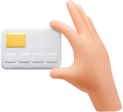AI to Automate 15% of the Current Healthcare Workforce's Hours by 2030

Updated Jun 10, 2024
AI is taking root and becoming increasingly integral in the healthcare space. According to the latest analysis by Stocklytics.com, 15% of the current healthcare workforce hours will be subject to automation by 2030. The growing reliance on AI is primarily due to the swelling patient population and a shorter pool of health specialists.
The site’s financial analyst, Edith Reads, comments:
The COVID-19 pandemic’s impact on patient volumes served as a critical wake-up call, underscoring the urgent need to modernize and upgrade the healthcare system. The adoption of AI is expected to alleviate the workload on healthcare providers, potentially reducing burnout rates and improving job satisfaction. By automating mundane tasks, healthcare professionals can dedicate more time to patient care, research, and specialized medical procedures, thereby enhancing the overall quality of healthcare services.
Stocklytics financial analyst, Edith Reads
AI in Healthcare
Nearly 90% of healthcare workers, life science companies, and tech vendors use AI in some capacity. AI implementation in healthcare systems can be categorized into Machine learning, Natural Language Processing, Computer Vision, and Context-Aware Computing. So far, machine learning has taken the lead in most AI-driven solutions by integrating AI and robotics in diagnosis and treatment. However, NLP can potentially be the market leader in the future, especially with generative AI-powered virtual assistants and chatbots experiencing rising requests due to their 24/7 support.
North America holds the largest market share in AI healthcare solutions globally and is poised to hold onto the helm in the coming years. The North American market will boast a $ 114.2 billion valuation by 2033, representing a 21% CAGR from 2023. While the diagnosis segment has been riling up its market value with over 24% market hold in 2022, the region still battles with patient skepticism. About 92.6% of Americans prefer a human medical professional over an AI to make triage decisions, and 87.9% prefer similar discharge decisions.
The second-largest region in the AI healthcare market is Europe. The European market will grow at a robust rate of around 10.3% from 2023 to 2030, driven by the intense focus on R&D activities and advancements in biotechnology drug discovery, particularly in key markets like Germany and the United Kingdom.
Following Europe’s lead, the Asia-Pacific region will achieve an impressive CAGR of 8.5% by 2028. This growth results from factors such as the rising geriatric population, the booming medical tourism industry, and increased research activities in healthcare AI across the region.
Tech Giants’ Role in AI Health Care
Google has made significant progress in the healthcare industry, especially with the development of Deep Mind, whose primary focus is AI pharmaceutical R&D, radiology, and imaging. Moreover, the Google subsidiary is also opening up to unstructured data analysis. Microsoft also counts on its AI-driven Azure cloud to collect medical data and provide the preferable environment for enterprise-provider software.
Apple promotes more patient-doctor interactions through technology by introducing the Apple Health app on its iPhone. Additionally, its Apple Watch series now integrates software to capture patients’ data.
Top Companies Offering Healthcare AI Solutions
Augmedix (US) is one of the top companies that delves into fostering AI in healthcare systems. They developed an AI-based solution to extract data from doctor-patient conversations, convert it into text notes, and insert it into the EHR system.
CloudMedX Health (US) leverages deep learning to analyze data EMRs and clinical notes to give clinicians insights about a patient’s state of health and new approaches to disease treatment.
Babylon Health (UK) has also proved helpful in providing remote consultation services and summing up patients’ complaints.
The continuous technological progress is expected to give healthcare workers the resources required to improve results, establishing AI as a partner in pursuing top-notch healthcare standards.
.

Sign up for our newsletter
Join our exclusive community of over one million investment enthusiasts and receive our free newsletter filled with analysis, news, and updates every weekday.







 All stocks
All stocks
 All Stocks
All Stocks
 52-Week High
52-Week High
 52-Week Low
52-Week Low
 AI Companies
AI Companies
 Big Tech
Big Tech
 Death Cross Stocks
Death Cross Stocks
 Golden Cross Stocks
Golden Cross Stocks
 High Beta
High Beta
 High Dividend
High Dividend
 High Volume
High Volume
 Highest Cash
Highest Cash
 Highest EBITDA
Highest EBITDA
 Highest NET Income
Highest NET Income
 Highest Revenue
Highest Revenue
 Largest Employers
Largest Employers
 Most Expensive
Most Expensive
 Most Volatile
Most Volatile
 Tech Companies 2024
Tech Companies 2024
 Triangle Patterns Stocks
Triangle Patterns Stocks
 All ETFs
All ETFs
 All ETFs
All ETFs
 Energy Sector ETFs
Energy Sector ETFs
 Major World ETFs
Major World ETFs
 Top US ETFs
Top US ETFs
 All Tools
All Tools
 Alerts
Alerts
 Technical Signals
Technical Signals
 Score
Score
 Smart Portfolio
Smart Portfolio
 Candle and Chart Patterns
Candle and Chart Patterns
